Let’s be honest: the digital marketing world is exploding with opportunity, but it can feel intimidating if you’re starting from scratch. Here’s the truth—you don’t need a fancy degree or years of agency experience to get your foot in the door. The only thing you really need? Curiosity, hustle, and a willingness to learn by doing.
This guide will show you exactly how to launch your digital marketing career from zero—no experience required. You’ll discover:
-
What digital marketing actually is (and why it matters)
-
Where the best entry-level opportunities are hiding
-
How to build real skills, a portfolio, and a personal brand—on your own terms
What Is Digital Marketing and Why Is It a Great Career Choice?
Overview of the Digital Marketing Industry
Let’s cut through the noise: digital marketing is the engine that powers online visibility, engagement, and sales for brands worldwide.
And right now, this industry is booming. As of 2024, the global digital marketing market is worth a staggering $667 billion—and it’s only getting bigger, projected to hit $786.2 billion by 2026. In the U.S. alone, the market is already $460 billion strong.

Fast growth makes digital marketing perfect for beginners.
Because fast growth means endless opportunity for beginners. The industry is expanding at a compound annual growth rate of 9%, and marketing jobs are expected to grow 10% by 2026—much faster than the average career path.
Digital marketing skills are among the most in-demand for 2025 and beyond, with roles like customer marketing manager and search marketing manager landing in CNBC’s top 10 fastest-growing jobs.
Common Job Roles and Career Paths
Here’s the beauty of digital marketing: there’s something for everyone. You could start as an:
- SEO Specialist
- Content Marketing Manager
- Social Media Manager
- Email Marketing Specialist
- Paid Ads Analyst
- Digital Marketing Strategist
As you gain experience, you can level up to senior roles like Digital Marketing Manager, Head of Marketing, or even Marketing Director.
Many pros start with one skill—say, content creation—and branch into SEO or email marketing as they go. Your path is yours to shape.
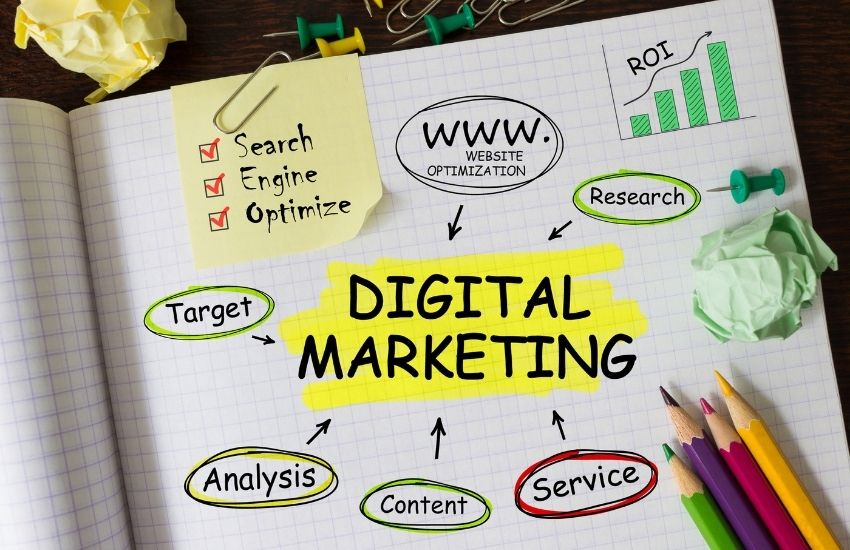
There are many positions in digital marketing you can try
How To Get Into Digital Marketing With No Experience? A Step-by-Step Guide
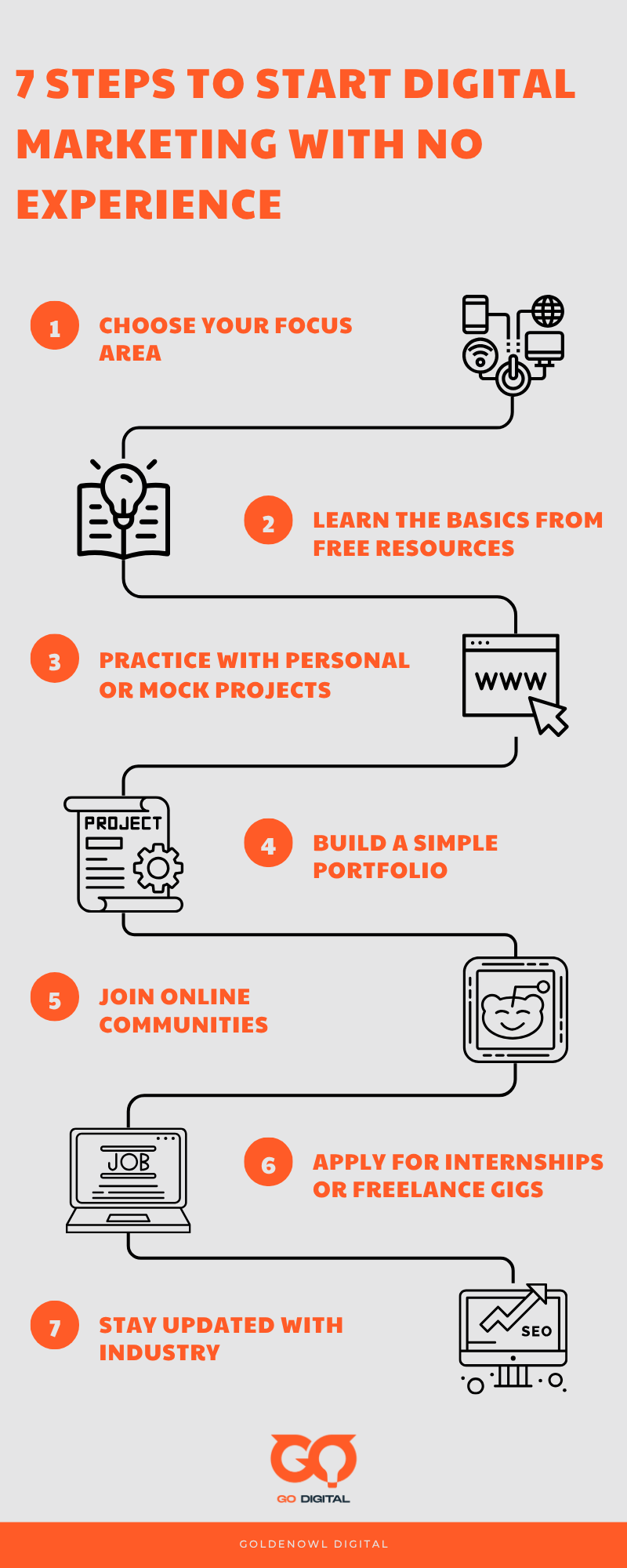
Step 1: Pick a Specialization (SEO, Content, Social, Email, etc.)
Digital marketing is a big playground—SEO, content, social, email, and more. Choose one area to start. Love data? Try SEO. Prefer writing? Go content.
Not sure? Sample a few, then double down on what excites you. Focusing early helps you avoid overwhelm and build confidence fast.

Start with a field you enjoy to try it out first
A strong grasp of SEO fundamentals is essential for any digital marketer. Explore the top techniques for SEO to build your expertise and improve website rankings
Step 2: Learn the Basics from Free Resources
Don’t pay yet. Google Digital Garage, HubSpot Academy, Moz—all offer free beginner courses.
YouTube tutorials and blogs are goldmines for real-world tips. Absorb the fundamentals, then test them out.
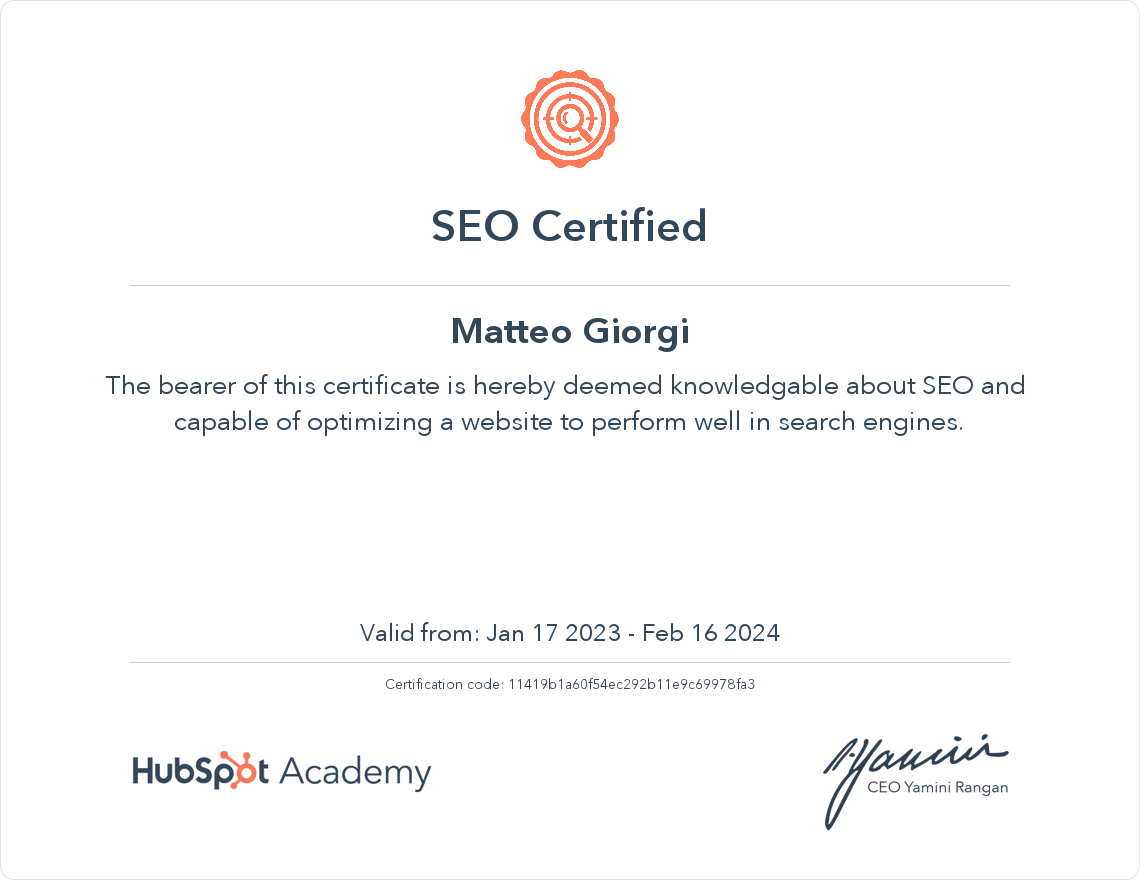
Learn from Google, HubSpot, Moz, and top YouTube creators.
Step 3: Take Courses or Get Certified
Free is great for basics, but structured courses (Coursera, Udemy, Skillshare) go deeper. Certifications like Google Ads or HubSpot show commitment and help you stand out.
They give your learning a roadmap and boost your credibility—even as a newbie.
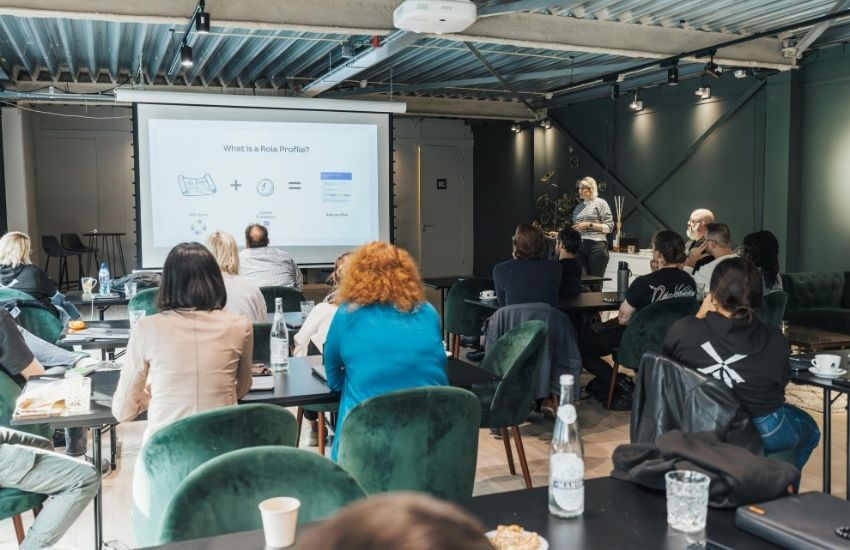
You should take a course or get certified when you start a career in digital marketing
Step 4: Practice with Personal Projects
Theory is nothing without action. Start a blog, launch a basic Facebook ad, or manage a small YouTube channel.
Every project is a chance to fail, learn, and improve. These real results become your talking points in interviews.
Step 5: Build a Portfolio
Don’t just tell—show. Document your projects: screenshots, analytics, short write-ups.
Canva, Notion, Wix, or WordPress make it easy to build a simple portfolio site. Explain your goals, tools, and outcomes for each project.

Building a strong portfolio will help you get noticed
Step 6: Join Online Communities
You’re not alone. LinkedIn groups, Reddit (r/SEO, r/DigitalMarketing), and Slack channels are packed with advice and job leads.
Ask questions, share wins, and learn from others’ mistakes. Networking is the shortcut most beginners miss.
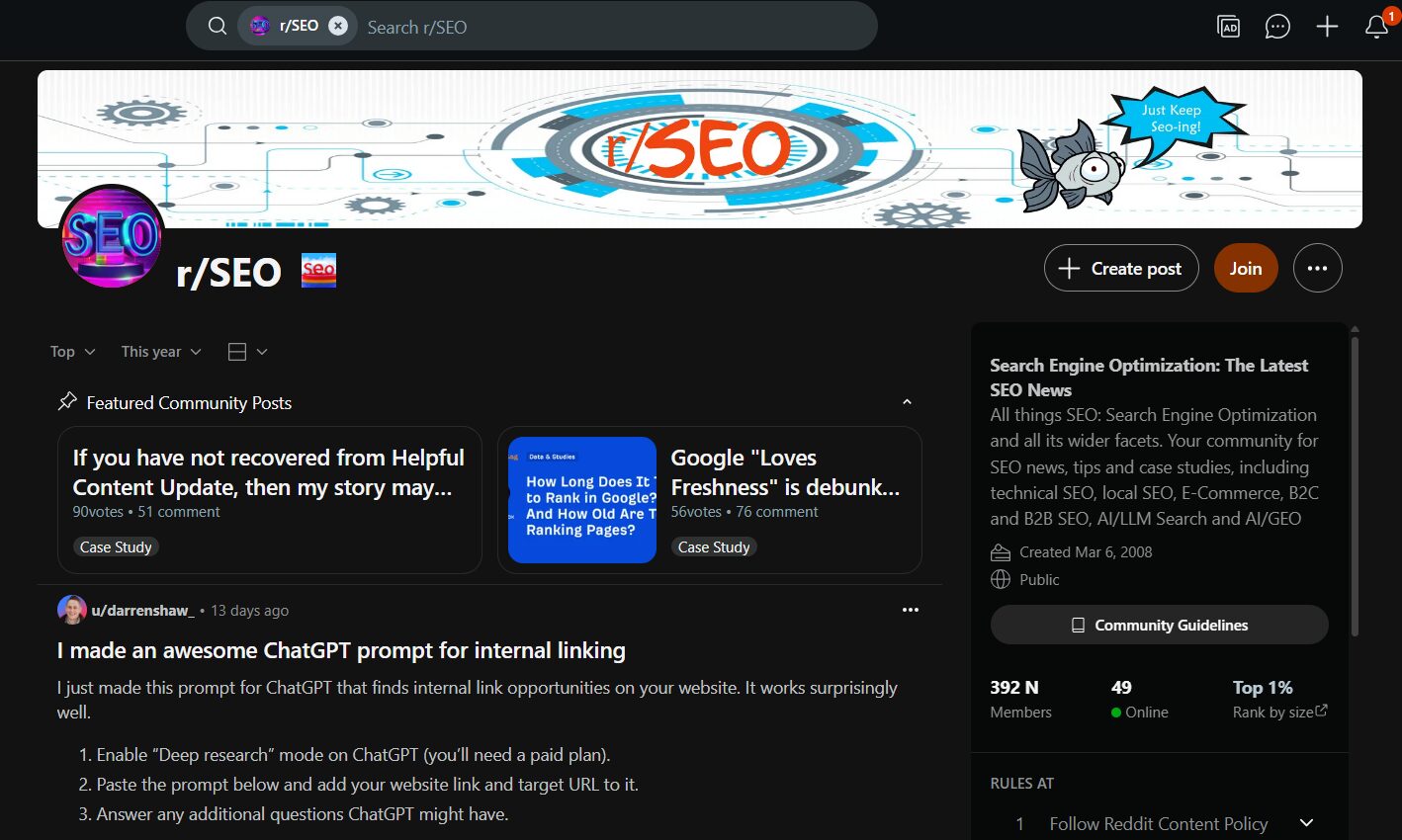
SEO community on Reddit
Choosing the right social media platform is crucial for maximizing your SEO impact. To understand which social media channels best support SEO efforts, check out our guide on which social media is best for SEO
Step 7: Optimize Your LinkedIn & Website
Treat LinkedIn as your digital handshake. Highlight your skills, certifications, and portfolio links.
Use keywords like “digital marketing fresher” or “SEO trainee” in your headline. Also, a personal website adds instant credibility and makes you searchable.
Step 8: Look for Freelance or Internship Work
Start small—Fiverr, Upwork, or even unpaid internships. Clients care about what you can do, not where you learned it.
Every project is a stepping stone and a resume builder.

Look for freelance or internship opportunities to gain more hands-on experience
Step 9: Reach Out to Agencies Directly
Don’t just wait for job posts. Email or DM small agencies with a short, honest pitch about your willingness to learn.
Many are open to mentoring or giving you a shot—even if you’re brand new. Persistence pays off.
Step 10: Follow Industry Trends
Stay sharp. Read blogs, listen to podcasts (Neil Patel, Search Engine Journal, Marketing Land).
Bookmark your favorites and check in daily. Digital marketing moves fast—so should you.
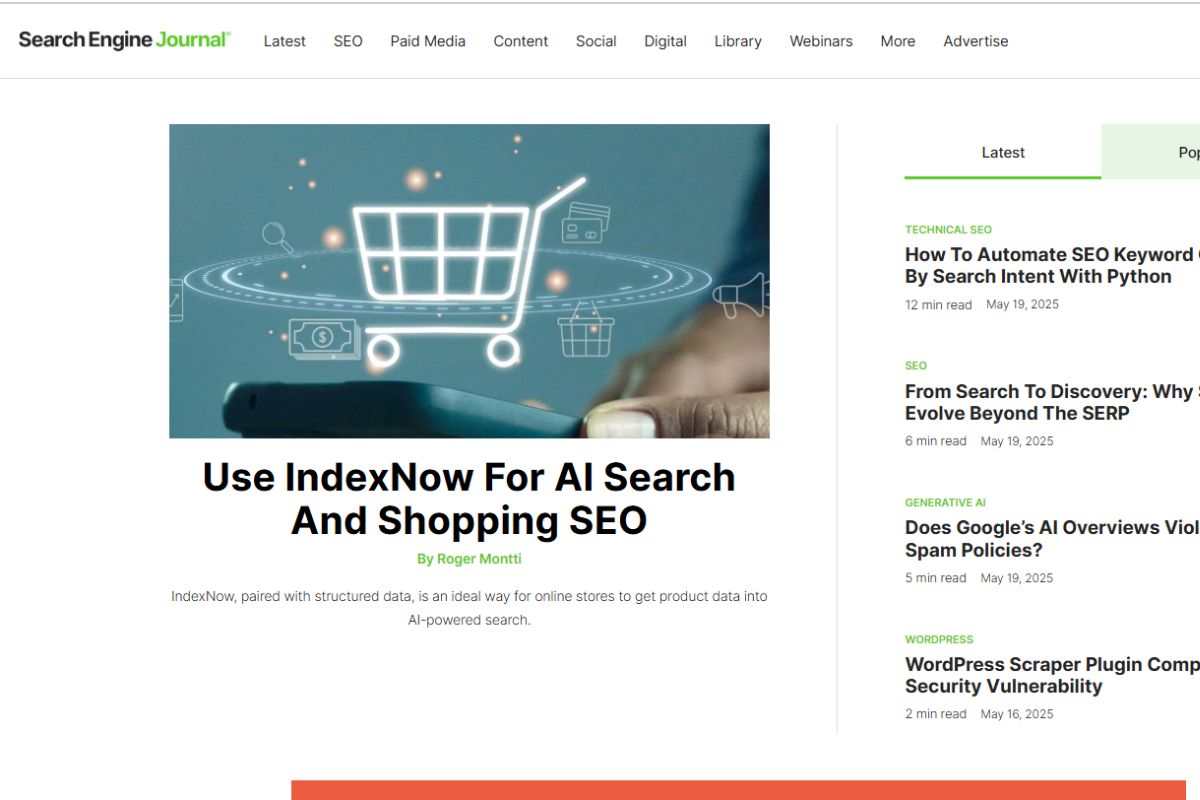
Follow industry trends to stay up to date and informed
Step 11: Learn Advanced Tools & Skills
As you grow, start using tools like Google Analytics, SEMrush, Ahrefs, Canva, and Mailchimp. Understanding how to use these tools increases your job-readiness and makes you more effective.
Analytics & SEO Tools:
- Google Analytics
- SEMrush
- Ahrefs
Marketing & Automation Platforms:
- Mailchimp (Email marketing)
- Hootsuite (Social scheduling)
Design & Content Tools:
- Canva (Design assets)
- Grammarly (Writing assistant)
Collaboration & Documentation:
- Notion
- Trello or ClickUp
Basic familiarity with these tools can improve your resume and help you talk confidently in interviews or client calls.
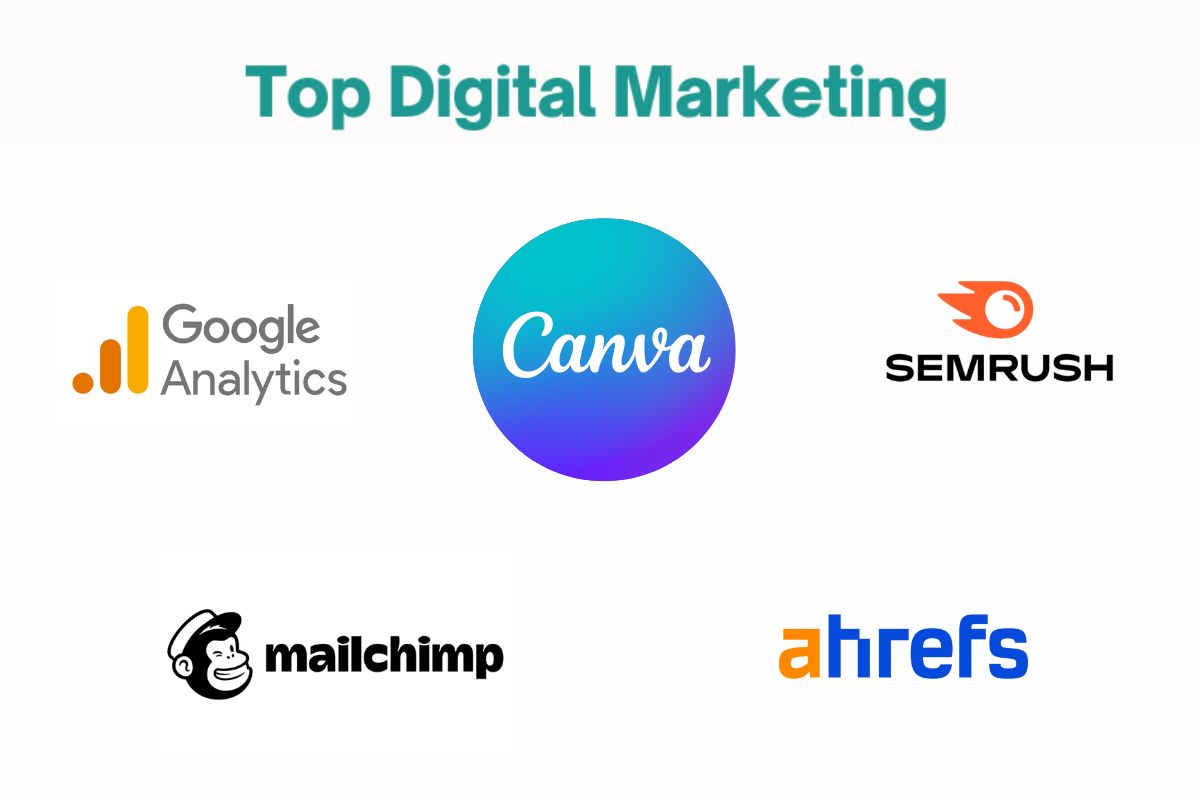
Learn more to improve your skills and experience
Step 12: Grow Your Personal Brand
Share your learning journey and projects on social media. Talk about what you’re working on, what you’re struggling with, and what you’re discovering.
A personal brand helps you stand out and attracts opportunities.
Mini Case Study: From Zero to Digital Marketer
Let me get personal for a second—because this is my story. No fluff, no theory. Just what actually happened.
Where It All Began
I started with nothing but curiosity and a laptop.
No degree. No connections. Just a hunch that digital marketing was calling my name.
Step 1: Free Learning, Zero Excuses
My journey kicked off with YouTube.
I binged basic SEO tutorials, soaking up the fundamentals and practical steps.
No fancy courses—just free content and relentless note-taking.
Step 2: Getting My Hands Dirty
After three months of self-study, I wanted more than theory.
So, I bought my own domain.
Every SEO tip I learned, I tested on that site—keywords, meta tags, content tweaks, you name it.
Step 3: Early Wins
Two months in, the site started to move.
Traffic ticked up. Rankings improved.
That’s when I realized: effort and experimentation actually pay off.
Step 4: The Breakthrough
Fueled by those small wins, I shot my shot and applied for an internship.
First interview—landed the gig.
Why? Because I had real projects, not just buzzwords on a resume.
Step 5: Leveling Up
Fast forward: two years of hands-on SEO experience.
I’m still learning, still experimenting, and still loving the ride.
Here’s the truth:
You don’t need a diploma to break into digital marketing.
Free resources, real-world practice, and the guts to take action—that’s your launchpad.
If I did it, so can you.
Conclusion
How to get into digital marketing with no experience? It’s easier than you think. With consistent learning, hands-on practice, and the right strategy, anyone can break into this exciting field. Whether you’re searching for digital marketing for beginners or no-experience digital marketing jobs, we hope these 12 tips will help you take your first step. Start your journey today and build a future-proof career in digital marketing!
If you’re looking for professional digital marketing services or considering outsourcing SEO services, don’t hesitate to contact Golden Owl Digital – our team is ready to help you grow your brand and drive revenue effectively.

Jaden is an SEO Specialist at Golden Owl Digital. He helps brands rank higher with technical SEO and content that resonates






